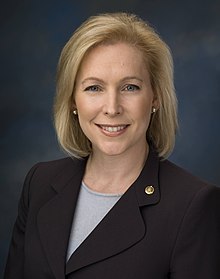**UPDATED** The following post has been updated and edited for clarity and grammar.
For the political cynic, that members of Congress may be enriching themselves as a result of their position in Congress is nothing new. When CBS’s 60 Minutes aired a report on insider trading by members of Congress, however, the story appeared to suggest that members of Congress were immune from prosecution even where famously Teflon stock brokers could not escape the Securities and Exchange Commission.
The crux of the problem lays in what is “material non-public information.” Anybody can be prosecuted for insider trading, not just stock brokers and CEO’s. A bum outside the New York Stock Exchange could have a man in a suit introduce himself as J.P. Morgan Chase CEO Jamie Dimon, receive a stock tip on J.P. Morgan, trade on it, and then face a securities prosecution. However, the material non-public information Congress, executive branch employees and their families have access to does not count because under current law that information arose as a result of their official duties.
In fact, while the 60 Minutes special did spur a wave of reactive legislation, plenty of bills predated it. Representatives Tim Walz and Louise Slaughter of Minnesota and New York respectively introduced a bill years ago to prevent elected officials in Washington from using the information they glean from the normal course of their duties for financial gain. However, to the lament of good government groups, this legislation never moved and had no life to speak of in the Senate…until CBS aired its report.
While the report accusations fell short against both John Boehner and Nancy Pelosi according to the Huffington Post, it got some things right and touched a nerve spurring Senators to show off their accountability credentials. Two seemingly identical Senate bills rose out of the ashes of Congress’s seemingly ever-smoldering credibility. One from a Democrat and one from a Republican. While both arguably drew from the Walz-Slaughter bill and the 60 Minutes report was the impetus for both, one has more credibility from colleagues and a better record to back it up.
 |
| US Capitol (Wikipedia) |
The crux of the problem lays in what is “material non-public information.” Anybody can be prosecuted for insider trading, not just stock brokers and CEO’s. A bum outside the New York Stock Exchange could have a man in a suit introduce himself as J.P. Morgan Chase CEO Jamie Dimon, receive a stock tip on J.P. Morgan, trade on it, and then face a securities prosecution. However, the material non-public information Congress, executive branch employees and their families have access to does not count because under current law that information arose as a result of their official duties.
In fact, while the 60 Minutes special did spur a wave of reactive legislation, plenty of bills predated it. Representatives Tim Walz and Louise Slaughter of Minnesota and New York respectively introduced a bill years ago to prevent elected officials in Washington from using the information they glean from the normal course of their duties for financial gain. However, to the lament of good government groups, this legislation never moved and had no life to speak of in the Senate…until CBS aired its report.
While the report accusations fell short against both John Boehner and Nancy Pelosi according to the Huffington Post, it got some things right and touched a nerve spurring Senators to show off their accountability credentials. Two seemingly identical Senate bills rose out of the ashes of Congress’s seemingly ever-smoldering credibility. One from a Democrat and one from a Republican. While both arguably drew from the Walz-Slaughter bill and the 60 Minutes report was the impetus for both, one has more credibility from colleagues and a better record to back it up.
 |
| Sen. Gillibrand (Official Portrait) |
However, despite being the newer of the two bills, the Gillibrand legislation has attracted more support from senators than Brown’s bill and by any measure appears to be much stronger than Brown’s legislation. Gillibrand also has a greater record of calling Washington and its denizens to account both in word and in deed.
On the surface Brown and Gillibrand share some striking similarities. Both come from politically active families in their homes states. Gillibrand’s grandmother was active in Democratic circles around Albany. Brown’s father was a Republican luminary in and around Newburyport, Mass. Both came to the Senate in rather unlikely circumstances. Brown succeeded liberal lion Ted Kennedy in deep-blue Massachusetts. Gillibrand, though succeeded a Democrat, became a dark horse appointee to fill out Hillary Clinton’s second term. David Patterson, then New York’s governor, picked one-term, recently reelected Gillibrand over now-Governor Andrew Cuomo amid the collapse of a possible Caroline Kennedy appointment. Their closeness in Senate seniority is only separated by Minnesota’s Al Franken. Both represent states that have had historic impact on Washington and are home to some of the nation’s most powerful and famous financial institutions.
 |
| Sen. Brown (Official Portrait) |
However, each senator’s version of the Stop Trading on Congressional Knowledge or STOCK Act has become another difference between the two. Both senators testified in front of the Senate Homeland Security and Government Oversight Committee in support of reform and both received support from good government groups. Yet Gillibrand’s continues to draw cosponsors and Brown’s is bobbing around largely forlorn and alone especially since last week's hearing.
That may be because Gillibrand’s bill is simply better. As said, both bills essentially add to existing definitions of insider trading so as not to upset the law as it relates to traditional insider trading. Both also empower the SEC and Commodities Futures Trading Commission to investigate members of Congress.
 |
| SEC Seal |
Brown’s bill omits coverage for spouses, family members and friends of members of Congress and their staffs. Indeed, Brown’s own FAQ sheet on the bill admits that this is the case. Gillibrand’s bill does include a prohibition against “tipping” and is now scheduled for mark up next Wednesday. According to a press release from Gillibrand’s office, her bill is designed to assure that “members of Congress and their families and their staffs are fully covered by insider trading laws.”
The relative failure of Brown’s bill is debatable. It did spur some positive press coverage, although Anne Mostue of New England Public Radio did ding Brown for pushing the bill only after the 60 Minutes story and possibly as a means to burnish his image ahead of a tough election in November. However, the bill that is likeliest to pass and get the requisite press coverage will not be the one he introduced regardless of his final vote. This will not be because, as some Senate Republicans have complained in recent press reports, Democrats have sabotaged Brown’s efforts to appear moderate ahead of reelection. Gillibrand’s bill has simply attracted more interest including among Republicans like Marco Rubio. Most recently John Thune, Republican of South Dakota also signed onto Gillibrand’s bill.
There may be a broader point, too, albeit one that may not be motivating Republicans to back Gillibrand over Brown. Gillibrand has the transparency and government reform goods whereas Brown does not. Brown has been criticized in Massachusetts, specifically by former Senate candidate Bob Massie, for being the “caboose” of the Senate, essentially joining a fight at the end of it and then claiming a starring role for himself.
 |
| Screenshot of Gillibrand Senate Site. Sunlight Report & Transparency Links Highlighted by WMassP&I in Green and Red |
For Gillibrand, moves toward real transparency began before she was even sworn in. In 2006 after her election to the House The New York Times editorial board praised Gillibrand’s “quiet touch of revolution,” nothing such a commitment was simply unheard of in Washington at the time. She promised to post her schedule and earmark requests when she got into office. Indeed, Gillibrand would go on to the Senate maintaining that commitment (via the Sunlight Report) and her homepage includes an invitation to peer through the window of transparency she keeps open as well as the agenda she maintains on the issue.
Brown by comparison does not even include government reform as among his "key issues," although the STOCK Act appears on 3 of the 5 items advertised sequentially on his homepage. Indeed, Brown’s website is designed to permit only selective crawling by search engines, limiting the public accessibility of his own website, something he and only a few other senators of both parties do. Brown did call for a Taxpayer Receipt, but the relative ease of producing such a document led the White House to do it without any help from Congress.
 |
| Sen. Brown in June (WMassP&I) |
It is impossible to measure objectively Brown’s seriousness on the insider trading issue, but it is possible to see that like many efforts to reform government, the process is a marathon. Since she entered Congress nearly five years ago Gillibrand has been running that race for reform. The LGBT magazine, the Advocate, quoted one Capitol Hill staffer who compared Scott Brown’s vote to repeal DADT to the Boston Marathon cheater Rosie Ruiz. On government accountability and transparency, the parallel to DADT, Brown stormed onto the stage at the last minute and got a little free media over it. However, the bill sponsored by the senator who has been going the distance for some time is in line to get more of the credit.
Good government groups like Public Citizen appear ambivalent about which bill actually becomes law. In a statement to WMassP&I, they noted the errors in both bills and while acknowledging that Brown’s bill was weaker, noted that Gillibrand’s included amendments to the Senate rules, which require a 2/3 vote if proposed mid-session. Groups like Public Citizen appear to want some progress on the issue and because each bill came from members of different parties, they wished to not break the fragile peace on this issue by picking one bill over the other.
 |
| Gillibrand at NY State Fair (Facebook) |
Work is also underway in the House where the House also held hearings at the Financial Services Committee. That committee is chaired by Alabama Republican Spencer Baucus who was featured in the 60 Minutes report, who possibly embarrassed, engaged Financial Services in its first actions on the bill since March.
With 222 sponsors in the House and a growing list in the Senate passage of this bill seems likely, if not certain. In any case, with Gillibrand’s bill seeming like the one the Senate will vote on first, it is likely that Brown will join with others to pass it, but it will not be his legislation and he cannot blame Democrats for that.
Both Senators face reelection next year, but Brown will have to settle for casting a practically anonymous vote that will probably be close to unanimous. No doubt his spinners will try to give him more credit, but the discriminating news agency will look below the surface and see his efforts only ever went half-way. Gillibrand, on the other hand, can claim a victory on one of her priorities that go back to 2006. With that in hand her star will shine brighter and the national profile will rise even higher as she looks to next year‘s election and beyond.






No comments:
Post a Comment